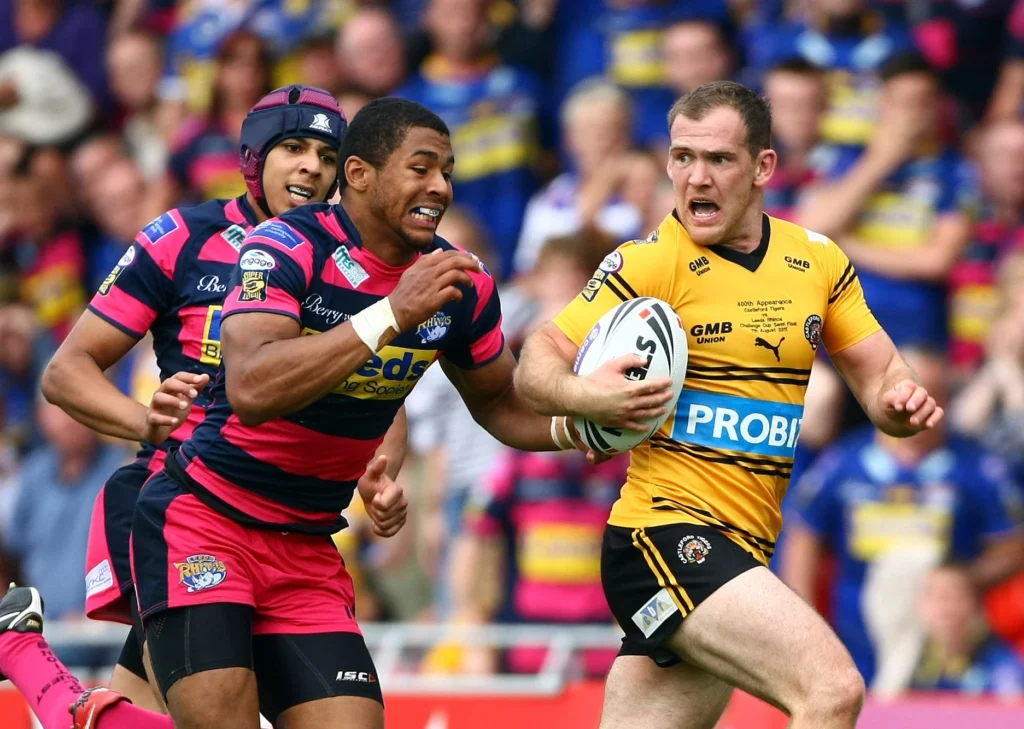When people talk about sports that test human limits, rugby and American football almost always come up. Tough, strategic, and requiring intense physical and mental strength — both games have evolved into giants of their own. But did you know that the transition from rugby to football isn’t just historical? It’s a growing phenomenon that’s impacting today’s NFL, college teams, and beyond.
Whether you’re an athlete thinking about making the switch, a coach, or a sports enthusiast curious about how rugby players thrive in football, this deep dive into the rugby-to-football transition will reveal everything you need to know.
The Historical Roots: Rugby Gave Birth to American Football
To understand the strong relationship between rugby and football, we need to go back to the mid-1800s. Football as we know it today actually originated from rugby.
In the 1860s and 1870s, American universities like Harvard and McGill began playing a version of rugby. However, American teams slowly altered the rules — allowing forward passes, reducing scrums, and introducing the “down system” to determine possession. These changes ultimately gave birth to American football, differentiating it from its rugby ancestor.
This shared history means that many fundamental elements — tackling, ball carrying, field vision — are still very similar today. That’s why athletes transitioning from rugby often feel like they’re stepping into a sport that’s both new and strangely familiar.
Why Rugby Players Transition So Well to Football

Rugby players possess a skill set that naturally translates into success on the football field. Let’s break down why rugby players transition so smoothly:
1. Superior Tackling Techniques
In rugby, players are taught to tackle without helmets or pads, focusing on safe, shoulder-first hits that wrap up opponents rather than recklessly diving at them. This technique aligns perfectly with the NFL’s modern push for safer, more efficient tackling.
In fact, some NFL coaches now actively study rugby tackling drills to reduce injuries among players.
2. Exceptional Field Awareness
Rugby players constantly scan the field for opportunities and threats, mastering spatial awareness. This translates beautifully to football, especially for positions like linebackers, defensive backs, and running backs, where reading the field is critical.
3. Endurance and Toughness
A rugby match is 80 minutes of almost non-stop play. Compare that to football’s short bursts of action with frequent breaks, and it’s easy to see why rugby players bring an enviable level of cardiovascular endurance and mental resilience.
4. Quick Ball Handling and Agility
Rugby athletes are trained to pass under pressure, dodge tackles, and break away with rapid footwork — crucial abilities for football positions like wide receiver, cornerback, and running back.
5. Versatility
In rugby, players are expected to attack, defend, kick, and cover ground — all in one match. This all-around athleticism makes rugby players ideal candidates for special teams or hybrid roles in football.
Real-Life Success Stories: From Rugby to the NFL
The rugby-to-football transition isn’t just a theory — it’s producing real stars on the gridiron. Here are a few notable examples:
Jordan Mailata (Philadelphia Eagles)
- A 6’8″, 365-pound rugby player from Australia, Mailata was drafted by the Eagles in 2018 despite never playing organized football.
- Today, he’s a starting offensive tackle, protecting quarterback Jalen Hurts’ blind side, and has earned a lucrative contract extension.
Nate Ebner (New England Patriots)
- A standout rugby sevens player for Team USA, Ebner transitioned to football at Ohio State and later played a key role on the Patriots’ special teams, winning three Super Bowls.
Christian Wade (Buffalo Bills)
- One of England’s top rugby players, Wade made a splash by scoring a 65-yard touchdown on his first touch in a preseason NFL game, showcasing the natural athleticism that rugby players bring to football.
These examples prove that with commitment and proper coaching, rugby players can thrive at the highest levels of football.
Key Challenges When Switching from Rugby to Football

While the transition is promising, it’s not without hurdles. Rugby players must adapt to several major differences:
1. Learning Playbooks and Schemes
Football is heavily strategy-driven, with complex playbooks and highly specific roles. Rugby players must become students of the game, learning terminology, formations, and play-calling at a much faster pace.
2. Adjusting to Protective Equipment
Helmets, shoulder pads, and other gear add weight and restrict movement. Rugby players must train with full pads to get comfortable moving at full speed while protected.
3. Specialization of Roles
Unlike rugby’s more generalized positions, football demands highly specialized skills depending on the role — whether it’s pass blocking, route running, or pass rushing.
4. Coping with Frequent Stops
Football’s structure — short plays followed by resets — contrasts with rugby’s flowing action. New players must mentally adjust to the constant start-stop rhythm.
How to Train for a Successful Rugby-to-Football Transition
If you’re a rugby player eyeing a move to football, or a coach preparing to guide an athlete through the process, here’s a step-by-step guide:
1. Identify the Best-Fit Position
- Running backs, linebackers, tight ends, and special teams players often transition best.
- Analyze body type, speed, and natural instincts to choose wisely.
2. Develop Football-Specific Skills
- Learn blocking techniques, route running, kicking (for punters/kickers), and ball security.
- Emphasize quick, explosive movements over long endurance sessions.
3. Understand Football Culture
- Embrace the strategic nature of the sport.
- Study film, learn terminology, and understand offensive and defensive schemes.
4. Work With Coaches Who Understand Both Sports
- Some NFL and college programs now offer development pathways specifically designed for athletes from rugby backgrounds.
5. Condition for Short-Burst Explosiveness
- Strength training, sprint drills, and plyometrics will help adjust to football’s emphasis on powerful, short-duration efforts.
The Future: Why Rugby-to-Football Pathways Are Growing
As football evolves toward a faster, safer, and more global game, recruiting athletes with rugby backgrounds is becoming more attractive than ever.
- NFL’s International Player Pathway Program actively scouts rugby talent worldwide.
- Colleges are increasingly open to giving scholarships to rugby players willing to adapt to American football.
- Professional training academies now exist to prepare rugby players for NFL combines.
Given rugby’s global reach and the NFL’s appetite for athleticism, the rugby-to-football pipeline is only going to get bigger in the coming years.
FAQ’s
1. Can a rugby player successfully transition to American football without prior experience?
Yes, with proper training and coaching, many rugby players successfully adapt to football even without previous experience.
2. What football positions are best suited for rugby players?
Running back, linebacker, tight end, safety, and special teams roles are ideal for rugby players.
3. How long does it take for a rugby player to adapt to football?
It typically takes between 6 months to 2 years of focused training to fully adapt.
4. Is rugby tackling safer than football tackling?
Yes, rugby tackling techniques emphasize safety and are now being taught in football to reduce injuries.
5. Are there professional programs that help rugby players transition to football?
Yes, programs like the NFL International Player Pathway help rugby players train and transition to football careers.
Final Thoughts: Two Sports, One Warrior Spirit
The transition from rugby to football is a journey filled with challenges, but also incredible opportunities. The DNA of both sports shares the same warrior spirit — toughness, teamwork, strategy, and passion. For any rugby player dreaming of trying their hand at football: the gridiron is calling, and your skills are more than ready. Embrace the challenge, learn the game, and you just might find yourself thriving in a whole new arena.



